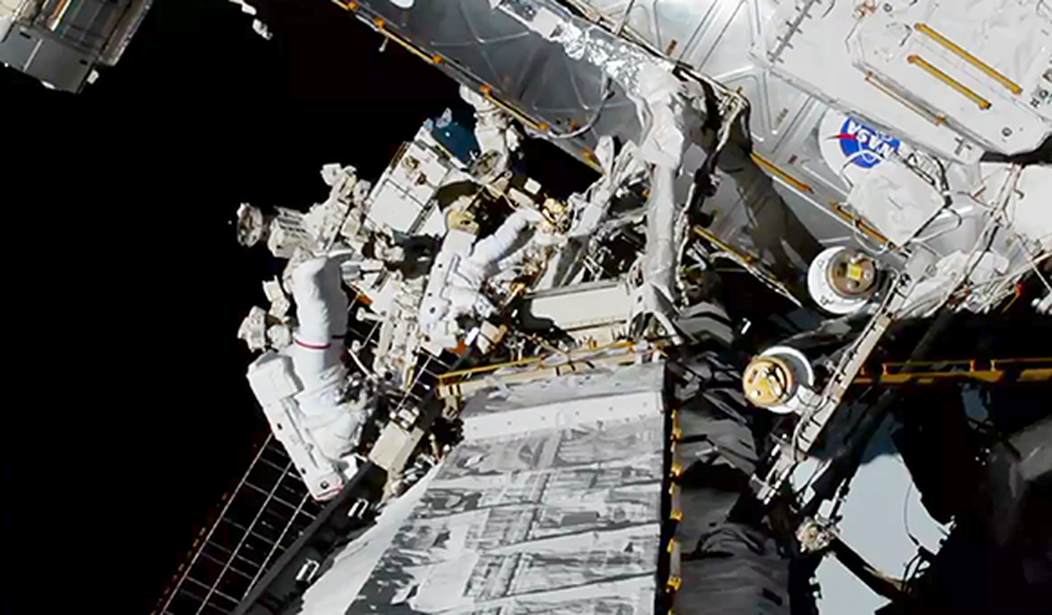If recent developments at the National Aeronautics and Space Administration (NASA) are any indication, the prospect for spending reform is still light-years away. This week, taxpayers learned that America’s space agency overpaid Boeing $287 million for operational flights to the International Space Station (ISS). The Inspector General (IG) report revealed that NASA continues to contract with Boeing for these spacefaring flights, despite Boeing charging NASA over 60 percent more than its competitors. If lawmakers don’t sound the alarm and call for greater oversight and accountability, taxpayers will be sucked further into a black hole of wasteful spending.
On November 14, the IG released a bombshell report on agency watchers unaccustomed to timely (or particularly biting) IG reports. The analysis found, “that NASA agreed to pay an additional $287.2 million above Boeing’s fixed prices to mitigate a perceived 18-month gap in ISS flights anticipated in 2019 and to ensure the contractor continued as a second commercial crew provider, without offering similar opportunities to SpaceX.” And the “fixed prices” alluded to in the report are $90 million per seat, as opposed to $55 million per seat charged by SpaceX.
The agency agreed to pay the substantial sum due to “Boeing’s 13-month delay in completing the ISS Design Certification Review milestone and after the Agency and Boeing could not agree to use the contract’s lower fixed price.” In other words, taxpayers had to fork over more money – not less – after NASA’s contractor couldn’t take care of business on time. In NASA’s version of events, the 13-month delay caused a “perfect storm” of schedule slippage that, unless addressed, could have led to an 18-month gap in ISS flights. Because NASA was operating on an unexpectedly-tight schedule, the agency saw fit to purchase “flexibility” from Boeing in scheduling ISS flights quickly.
But, according to the IG, NASA could have pursued multiple options to prevent paying Boeing for the additional flexibility. For example, the space agency could have shifted, “the second Boeing mission 6 months later to coincide with the first crewed mission’s end” or considered, “a small equitable adjustment to move up the third mission.” Normally, once an IG points out the myriad problems with a federal agency, that agency acknowledges its faults and pledges to reform (even if the agency doesn’t follow through on all or most reforms).
Recommended
Such improvements are difficult when all stakeholders don’t agree that there are issues in the first place. Boeing didn’t take kindly to the IG’s constructive criticism so the company released a statement shortly thereafter taking issue with the report’s claims. Despite the IG’s claim that Boeing repeatedly pressured NASA to pay extra fees even after it demurred, Boeing Space and Launch senior vice president Jim Chilton claimed that the company pursued, “fair and open negotiations with NASA in a competitive environment.” That claim is hard to take seriously, though, given the IG’s documentation that SpaceX “was not provided an opportunity to propose a solution even though the company previously offered shorter production lead times than Boeing.”
Competitive bidding for commercial space flights offers significant promise for NASA, but only if the agency works with a level head and takes all proposals seriously. If NASA continues to fail in this mission, costs will only increase for taxpayers over the long-haul. If all goes according to plan, NASA will land astronauts on the Moon (again) by 2024. But lawmakers have legitimate questions about the required costs to taxpayers, which seem to be all over the board.
If the space agency commits to a commercial approach for the Moon landing and future manned missions, costs can stay in check without IG drama. For the sake of taxpayers across the country, NASA should prioritize spending reform and oversight and ignore the drama and demands of its contractors.
Ross Marchand is the director of policy for the Taxpayers Protection Alliance.
























Join the conversation as a VIP Member